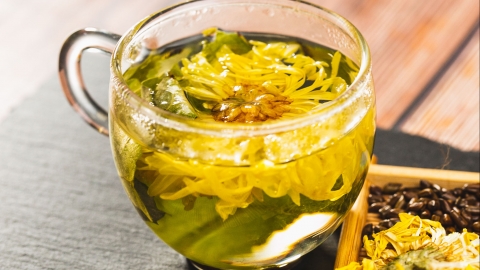Can patients with gallstones drink chrysanthemum tea?
In general, patients with gallstones can drink chrysanthemum tea in moderation. The detailed analysis is as follows:

For patients with stable gallstone conditions, drinking moderate amounts of chrysanthemum tea is acceptable. Chrysanthemum tea consists primarily of water and contains no fat or cholesterol, so it does not stimulate gallbladder contraction or increase the burden on the condition. Its mild flavor helps hydrate the body and relieve symptoms such as dry mouth and throat. For some individuals, it may also have a calming effect on mood, without interfering with normal gallbladder function, making it suitable as an occasional beverage choice.
When drinking chrysanthemum tea, it's important to choose pure dried chrysanthemum flowers without additives, and avoid sugary chrysanthemum drinks to prevent excessive sugar intake and added metabolic strain. The tea should not be brewed too strongly, as excessive concentration may make it overly cooling and irritate the gastrointestinal tract—especially patients with spleen and stomach deficiency-cold should control both the strength and amount consumed. Do not drink large quantities at once, and avoid consuming on an empty stomach. If discomfort such as abdominal pain or diarrhea occurs after drinking, discontinue use immediately and monitor symptoms; consult a doctor if necessary. Plain boiled water should remain the primary daily beverage, with chrysanthemum tea reserved for occasional use, in line with the principle of maintaining a light diet.









